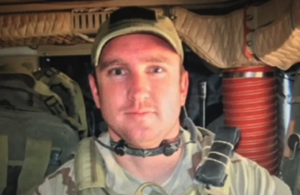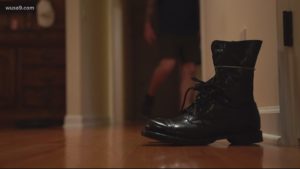When it comes to military medical malpractice cases, preserving evidence is critical for building a strong claim. The unique challenges presented by military healthcare systems, combined with legal nuances under the Federal Tort Claims Act (FTCA) and Military Claims Act (MCA), make it essential to act swiftly and methodically. This guide explains how to preserve evidence effectively to support your case.
Understanding Military Medical Malpractice
Military medical malpractice occurs when a healthcare provider in a military hospital or clinic deviates from the accepted standard of care, resulting in injury or harm. These cases can involve misdiagnosis, surgical errors, delayed treatment, or improper medication administration. Unlike civilian malpractice cases, military medical malpractice claims have distinct rules and limitations, emphasizing the need for precise evidence preservation.
Why Preserving Evidence Is Crucial
Ensuring Accountability
Evidence demonstrates the breach of standard care and its impact. Without solid evidence, it becomes challenging to establish fault.
Overcoming Legal Hurdles
Military cases often involve additional scrutiny. Preserved evidence provides the factual foundation needed to navigate the FTCA or MCA and avoid claim denial.
Strengthening Negotiations
Detailed and well-documented evidence enhances credibility, whether negotiating settlements or pursuing litigation.
Step-by-Step Guide to Preserving Evidence
1. Obtain Complete Medical Records
Medical records are the backbone of any malpractice claim. Under the Health Insurance Portability and Accountability Act (HIPAA), patients can request their medical records. For military personnel or dependents, submit a written request to the appropriate military treatment facility (MTF).
Key Actions:
- Request All Records: Include progress notes, lab results, imaging, and prescriptions.
- Verify Accuracy: Cross-check the records for completeness and accuracy.
Tip:
Seek assistance from an attorney to identify discrepancies or omissions in the records.
2. Document Symptoms and Events
Maintain a detailed log of symptoms, treatments, and interactions with healthcare providers. Personal accounts can fill gaps in medical records and highlight negligence.
Include:
- Dates and times of medical visits or treatments.
- Descriptions of symptoms and their progression.
- Notes on conversations with medical staff.
Why It Matters:
First-hand accounts personalize the case and emphasize how negligence affected daily life.
3. Preserve Physical Evidence
If medical malpractice involved surgical instruments, medications, or medical devices, retain these items when possible. For example:
- Retain Medical Devices: Defective implants or equipment can serve as key evidence.
- Photograph Injuries: Capture images of physical injuries or visible symptoms.
Best Practices:
- Store evidence in a safe, dry location.
- Use timestamps on photographs to establish timelines.
4. Gather Witness Testimonies
Family members, friends, or colleagues who witnessed the aftermath of the malpractice can provide supporting testimonies. They can attest to changes in health, behavior, or capabilities caused by negligent care.
Steps to Follow:
- Ask witnesses to write statements while their memories are fresh.
- Obtain contact information for follow-up questions or court appearances.
Pro Tip:
Healthcare staff willing to provide unbiased insights can strengthen your case. However, ensure they are not constrained by confidentiality agreements.
5. Secure Expert Opinions
Medical experts play a pivotal role in military malpractice cases by providing professional insights into breaches of care.
What to Do:
- Hire a medical expert with experience in military healthcare systems.
- Have them review medical records and evidence to identify negligence.
Benefits:
Expert testimony validates claims and counters defense arguments effectively.
6. File a Timely Notice of Claim
Military malpractice claims have strict deadlines under the FTCA and MCA. Filing late can result in dismissal, even with solid evidence.
Deadlines to Note:
- FTCA: Two years from the date of injury.
- MCA: Varies but often requires prompt action.
How to File:
- Include a detailed summary of malpractice and damages.
- Attach supporting evidence, such as medical records and expert statements.
7. Avoid Destroying or Altering Evidence
Evidence tampering, even unintentionally, can jeopardize a claim. For example, altering medical records or discarding items tied to the incident may raise red flags.
Safeguards:
- Create multiple copies of all documents and photographs.
- Consult your attorney before making any changes or submissions.
Common Mistakes to Avoid
1. Waiting Too Long
Delays can lead to lost or degraded evidence, making it harder to substantiate claims.
2. Relying Solely on Memory
Memory fades over time. Written records and photographs provide reliable proof.
3. Handling Evidence Without Guidance
Inappropriate handling of evidence, such as improperly storing medical devices, can weaken a case. Seek legal advice on evidence preservation.
How an Attorney Can Help
Preserving evidence for military medical malpractice cases is a complex process, and legal guidance ensures you don’t overlook crucial details. Attorneys experienced in military malpractice cases can:
- Access Key Evidence: Obtain hard-to-access records or data.
- Evaluate Evidence: Determine its relevance and strength.
- Ensure Compliance: Navigate strict military regulations and deadlines.
Conclusion:
Preserving evidence is the cornerstone of a successful military medical malpractice claim. You can build a compelling case by collecting medical records, documenting events, securing expert opinions, and adhering to legal deadlines. However, tackling this alone can be overwhelming, especially with the unique complexities of military healthcare systems.
If you or a loved one has experienced military medical malpractice, don’t wait. Contact the legal team at Khawam Ripka LLP today for a consultation. Our attorneys specialize in military malpractice cases and will guide you through every step, from evidence preservation to litigation. Let us help you secure the justice and compensation you deserve.

 Call Now- Open 24/7
Call Now- Open 24/7




